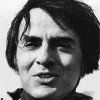“ In science, any clash between the individual and society is in essence transitory, since men of science, broadly speaking, all accept the same intellectual standards, and therefore debate and investigation usually produce agreement in the end. ”
Bertrand Russell, A History of Western Philosophy (1945). copy citation
| Author | Bertrand Russell |
|---|---|
| Source | A History of Western Philosophy |
| Topic | society science |
| Date | 1945 |
| Language | English |
| Reference | |
| Note | |
| Weblink | http://www.ntslibrary.com/PDF%20Books/History%20of%20Western%20Philosoph... |
Context
“he does not bow to authority, for, if he did, he would continue to accept the theories of his predecessors. At the same time, his appeal is to generally received canons of truth, and he hopes to persuade other men, not by his authority, but by arguments which are convincing to them as individuals. In science, any clash between the individual and society is in essence transitory, since men of science, broadly speaking, all accept the same intellectual standards, and therefore debate and investigation usually produce agreement in the end. This, however, is a modern development; in the time of Galileo, the authority of Aristotle and the Church was still considered at least as cogent as the evidence of the senses. This shows how the element of individualism in scientific method, though not prominent, is nevertheless essential.”
source


